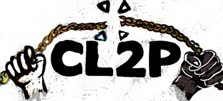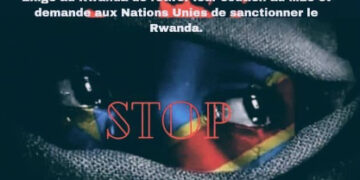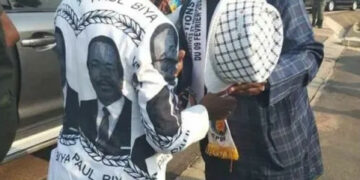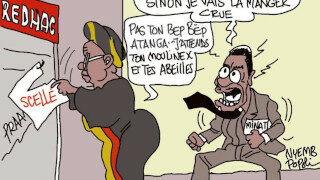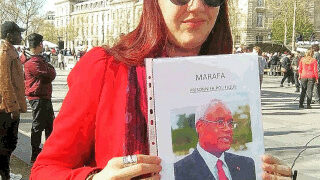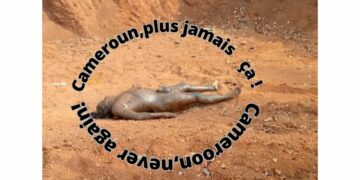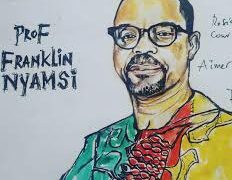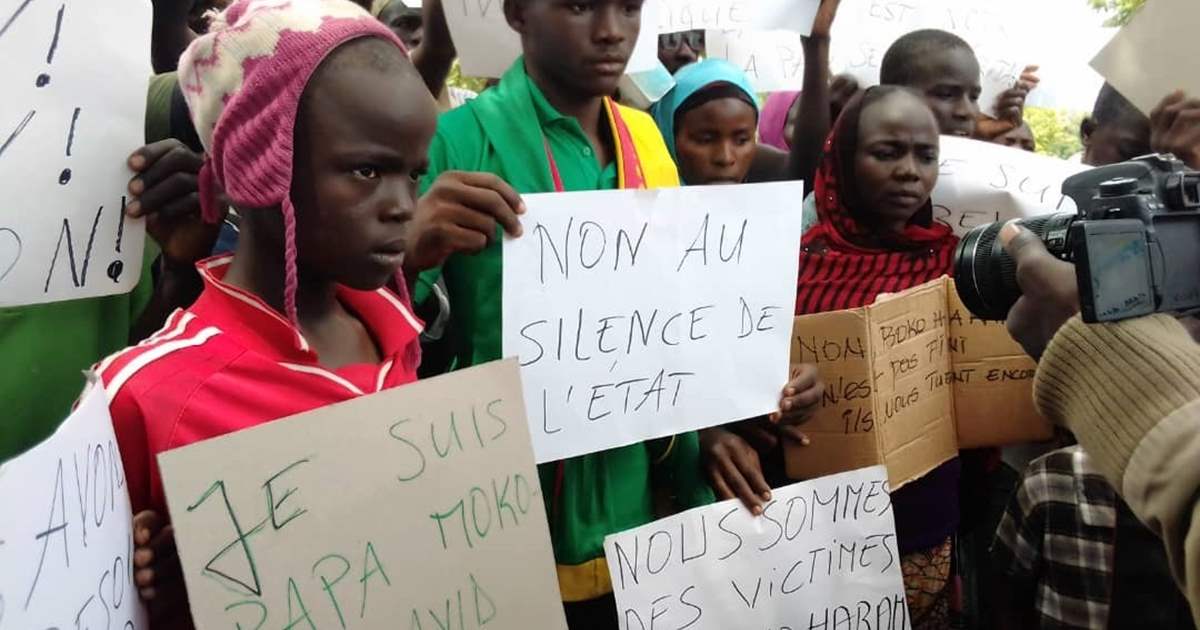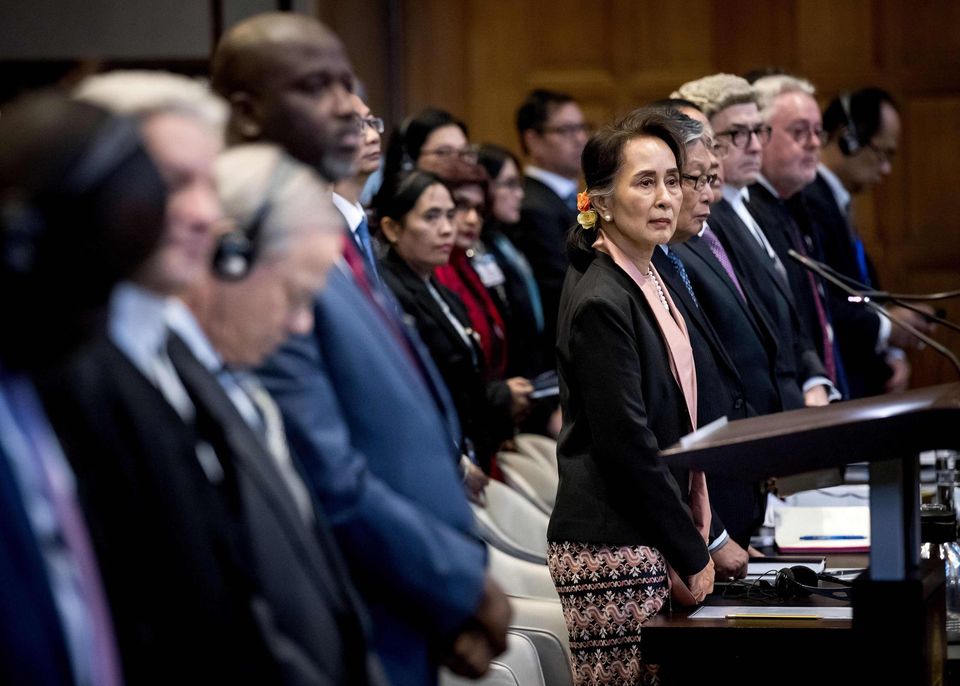Cameroon: Victims of Boko Haram attacks feel abandoned in the Far North
-
At least 275 people killed-including 225 civilians- between January and November
-
Women who each had an ear amputated
-
Kidnappings and forced conversions to Islam
At least 275 people have been killed and others mutilated or kidnapped during a resurgence of Boko Haram attacks in the Far North of Cameroon this year, Amnesty International said today.
During a field research, the organization has documented crimes under international law and violations which took place during attacks between January and November 2019, including the looting and burning of homes and health centres, the shooting of an old blind man, and three women who had their ears cut off. The people Amnesty International interviewed said they felt abandoned by the Cameroonian authorities.
The people we met in Cameroon’s Far North are living in terror. Many of them have already witnessed Boko Haram attacks and lost family members or friends. They no longer ask whether there will be further attacks but when they will take place – they feel completely abandoned by the authorities.Samira Daoud, Amnesty International’s Acting Regional Director for West and Central Africa.
“The people we met in Cameroon’s Far North are living in terror. Many of them have already witnessed Boko Haram attacks and lost family members or friends. They no longer ask whether there will be further attacks but when they will take place – they feel completely abandoned by the authorities,” said Samira Daoud, Amnesty International’s Acting Regional Director for West and Central Africa.
“People are living in total deprivation and will continue to suffer Boko Haram’s murderous assaults or leave their communities if nothing is done. The Cameroonian authorities must urgently increase the protection for the areas affected, in accordance with respect for human rights and international humanitarian law.”
Amnesty International recently conducted a two-week field research visit to Maroua and Mokola in Cameroon’s Far North, where researchers interviewed more than 30 victims of and witnesses to crimes and abuses committed by Boko Haram. Interviews were also conducted in Maroua and Yaoundé with humanitarian officials, academics, representatives of associations, researchers and lawyers.
275 deaths, mostly civilians
On 9 January 2019, President Paul Biya announced that Boko Haram had been “pushed outside” Cameroon’s borders and now presented “a residual threat”. Amnesty International’s research shows that, since then, there has been a resurgence of Boko Haram attacks in the Far North.
Between January and November 2019, 275 people were killed during Boko Haram attacks, – the equivalent of 25 a month, according to data gathered by Amnesty International. Of these, 225 were civilians.
People living in Tourou told Amnesty International they had experienced 16 attacks since the start of the year in which six people were killed and several more kidnapped.
Members of security committees are often targeted, as well as people who are elderly, vulnerable or living with disability.
For example, one witness told Amnesty International that during an overnight attack in Gakara village on 29-30 July, how a blind man and a child were killed:
Members of Boko Haram tried to drag a young boy away but he clutched his grandmother with all his might, crying and saying that he did not want to leave. So Boko Haram killed the boy …A witness
“… Members of Boko Haram found a nine or ten-year-old boy with two older persons: his grandmother and an old blind man. They tried to drag him away but the child clutched his grandmother with all his might, crying and saying that he did not want to leave. So Boko Haram killed the boy and the old man.”
Gakara residents said they could no longer count the number of times Boko Haram has attacked them. Some told Amnesty International that Boko Haram members were hiding in the mountains where they could see the village without the villagers seeing them, and so they were able to approach under cover.
Another witness to the July attack said:
“Members of Boko Haram walked all the way around the village to attack us from the opposite direction. We were out checking the area with torches when one of them took us by surprise. Then they attacked … People were shouting: ‘Boko Haram are here! Boko Haram are here! They’re in the village!’ I jumped the wall to my house and fled … They entered my uncle’s house, he’s 80 years old. As soon as they saw him, they killed him. Then they went from house to house, surrounding each one to prevent the people from escaping.”
Mutilations
It was also in Gakara that Amnesty International documented the mutilation of three women.
At the end of July, these women, aged between 27 and 40, had each an ear cut off by members of Boko Haram.
One of the women said:
“The attackers told us they had cut an ear off of each of us because they had been unable to capture our husbands, and that next time they would kill us.”
The husband of another victim gave the following testimony:
” … They stopped one of my wives and told her to go with them. When she refused, they threatened to cut her throat. She said she’d rather that than go with them. One of the men then suggested they slit her throat, one that they cut her hand off and the third that they cut her ear off. So that’s what they did and they left her like that…”
Nine people killed as village set alight
In Tchakamari, another village in the Far North, nine people died in house fires during an attack on the night of 18 to 19April 2019. Issa (not his real name), a 28-year-old shepherd, told Amnesty International:
“ … When we returned after the attack we found nine people dead inside burned out houses. We don’t know if they were executed beforehand or if they died in the fire. All our property was stolen or destroyed. Some motorbikes were burned, others stolen. These groups want to steal from us and do us harm.”
Amnesty International also documented systematic lootings.
According to a list of stolen property seen by the organisation, clothing and shoes are often taken, as well as high value items like livestock and vehicles. Identity documents like birth certificates are often stolen or destroyed, making life even more difficult for the victims.
Three health centres in Tourou and Moskota have been looted, and in Gossi, the Baptist church and the pastor’s house were also set alight.
“Sleeping at home, gathering wood or working in the fields are all risky activities for villagers terrorized by Boko Haram. Many people sleep outside, away from the villages, for protection but this leaves them exposed to bad weather and illness. The Cameroonian authorities must step up and increase security in the Far North,” said Samira Daoud.
“There must also be an investigation into all these acts of violence, and those responsible must be brought to justice.”
Women kidnapped and forced to convert to Islam
Amnesty International also documented attacks during which non-Muslims were kidnapped and forced to convert to Islam.
In Tourou canton, an area of 16 mostly Christian villages in Mayo-Tsanaga, a 36-year-old woman and a 17-year-old girl were abducted on 3 July 2019 and forced to convert to Islam.
They told Amnesty International that they were kidnapped early in the morning in their fields by attackers who were hiding in the grass. The attackers tied their hands and necks, and then forced them to walk all day and part of the night without food or water.
They remember stopping in an area “at the foot of a mountain” where there were many Boko Haram members. Threatened with death, they were forced to convert to Islam. They were told that their villages could live in peace if all the inhabitants did the same and that they would be able to go home to collect their children.
The women learned to do their ablutions and to follow the principles of the Muslim religion as practised in that area. Their freedom of movement was considerably restricted during their period of detention. They were held in rooms and not allowed out except to go to the toilet. They had to do housework but were not authorised to cook as their abductors feared they might poison them. The two women managed to escape on 15 July 2019.
Feeling abandoned
Faced with these recurring attacks, the inhabitants of those areas most affected feel they have been abandoned by the Cameroonian authorities.
“The problem is that Boko Haram are in the bush and the soldiers are in the town. It takes them too long to get here and, when they do, it’s too late,” said one witness. Many of the people Amnesty International spoke to felt the same.
The lack of media and political focus on the conflict in the Far North only reinforces this feeling of being left alone to face attacks. Boko Haram attacks in this region receive little official media coverage and only a few rare publications document these attacks.
In March 2019, the inhabitants of a village in Mora commune sent a handwritten letter to the Minister for Public Contracts, who is originally from that area. In the letter they called on him personally to intervene to establish a military outpost in the area following their “unsuccessful appeals to the local and administrative authorities”. According to this letter, the population of this village has declined from 3,000 to around 100 inhabitants over the past few years because of regular attacks.
Public demands for more security have proliferated in the second half of the year, with protests taking place in Tourou on 17 July, Tolkomari on 11 September and Moskota in early November. While the authorities have taken some actions, these have not satisfied the local people. In Logone-et-Chari, the authorities suspended humanitarian aid in June after deciding that the distributions were actually assisting the armed groups. While these recommenced in August, increased monitoring of shipments has resulted in a far more complex logistical system.
The people of the Far North must not be abandoned. The Cameroon authorities must ensure their protection and the right of everyone to a sufficient standard of livingSamira Daoud
“The people of the Far North must not be abandoned. The Cameroon authorities must ensure their protection and the right of everyone to a sufficient standard of living,” said Samira Daoud.
